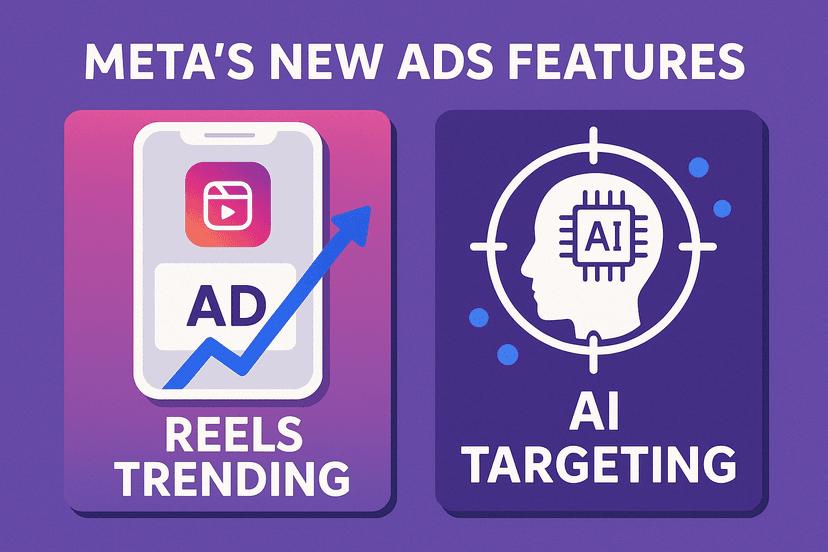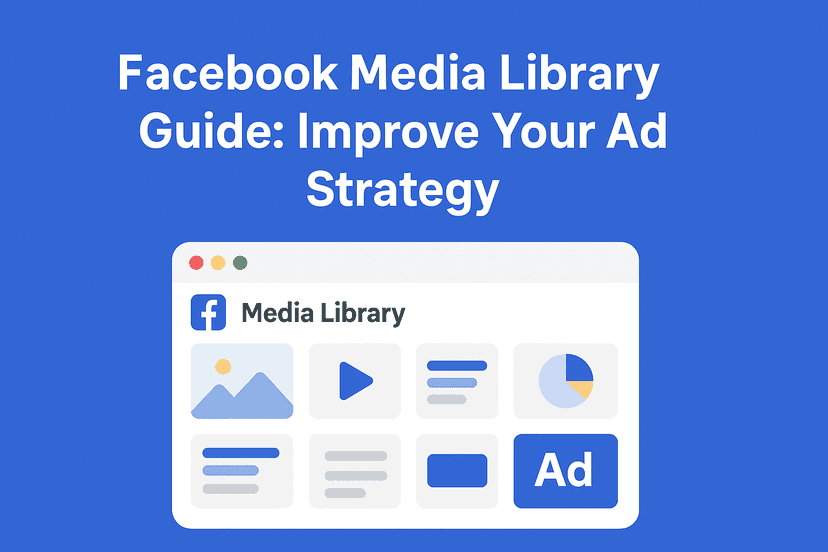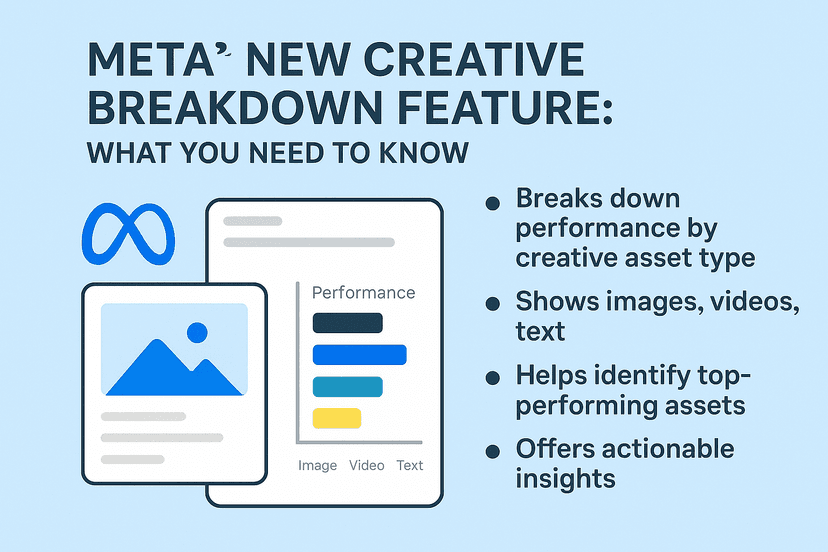In the ever-evolving landscape of digital advertising, Meta continues to refine its tools to help advertisers maximize their return on investment. One such innovation is the “Opportunity Score” metric, which Meta is now highlighting to more users through a new alert in Ads Manager. This feature aims to raise awareness of Meta’s AI-based ad performance recommendations and help advertisers optimize their campaigns more effectively.
Understanding Meta’s Opportunity Score
The Opportunity Score is a numerical rating system that provides advertisers with a quick assessment of their campaign setup. Ranging from 0 to 100 points, this score summarizes how well your campaigns are positioned to maximize performance based on Meta’s best practices and AI insights.
What makes the Opportunity Score particularly valuable is its ability to provide immediate feedback on your campaign setup. Instead of waiting for days or weeks to determine if your strategy is effective, you can get instant insights that could help you optimize your results from the start.
According to Meta, “The score is coupled with near real-time recommendations for what an advertiser can do in just a few steps to help improve performance, including tapping our AI-enabled Advantage+ suite.” This immediate feedback loop allows for quicker optimization and potentially better results.
How the Opportunity Score Works
The calculation of your Opportunity Score is relatively straightforward. It’s based on how many of Meta’s Ads Manager recommendations you implement. These recommendations aren’t random suggestions but are ranked based on their estimated performance impact.
Meta explains that these “recommendations are experimentally proven to help improve performance and include best practices as well as errors and warnings that appear when there’s an issue with an ad or campaign, such as incorrect formatting, missing information, or policy violations.”
In essence, the more of Meta’s systematic campaign recommendations you action, the better your score becomes. This is based on what Meta views as potential opportunities to improve your ads based on their vast database of advertising performance metrics.
The Benefits of Using Opportunity Score
Early tests conducted by Meta have shown promising results. According to the platform, “advertisers who adopted opportunity score recommendations saw a 5% median decrease in their cost per result.” This improvement can translate to significant savings, especially for businesses running large-scale advertising campaigns.
Beyond just cost savings, the Opportunity Score offers several other benefits:
-
Time Efficiency: Instead of manually analyzing various metrics to identify improvement areas, the Opportunity Score highlights them for you.
-
AI-Powered Insights: The recommendations are based on Meta’s AI analysis of successful advertising patterns across the platform.
-
Easy Implementation: Many of the recommendations can be implemented with just a few clicks, making optimization accessible even for advertisers with limited technical expertise.
-
Real-Time Feedback: As you make changes to your campaigns, you can see how they impact your Opportunity Score in real-time, allowing for iterative improvements.
Key Areas Addressed by Opportunity Score Recommendations
The recommendations provided alongside your Opportunity Score typically address several key areas of campaign optimization:
Audience Targeting
One of the most critical aspects of any advertising campaign is reaching the right audience. Opportunity Score recommendations might suggest expanding or refining your audience based on performance data. For instance, if similar advertisers have seen success with a broader demographic range, the system might recommend widening your target audience.
Creative Optimization
The visual and textual elements of your ads play a crucial role in engagement. Meta’s recommendations might include suggestions for improving ad creatives, such as:
For more insights into creative strategies, consider exploring content marketing techniques.
Budget Allocation
Efficient budget allocation can significantly impact your campaign’s ROI. The Opportunity Score might recommend:
- Shifting budget to better-performing ad sets
- Adjusting daily spending limits
- Implementing campaign budget optimization (CBO)
- Reconsidering your bidding strategy
If you’re managing multiple platforms, understanding Google Ads can also enhance your overall strategy.
Campaign Structure
Sometimes, the way your campaigns are structured can limit their effectiveness. Recommendations might include:
- Consolidating similar ad sets
- Separating campaigns with different objectives
- Reorganizing your ad account structure for better performance tracking
- Implementing a more efficient naming convention for easier management
Implementing Meta Ads Opportunity Score Recommendations
While the Opportunity Score provides valuable suggestions, it’s important to approach them strategically. Here’s a process for effectively implementing these recommendations:
Step 1: Review Your Current Score
Before making any changes, take time to understand your current Opportunity Score and the specific recommendations provided. This baseline will help you measure the impact of the changes you implement.
Step 2: Prioritize Recommendations
Not all recommendations will have the same impact on your campaigns. Meta typically ranks them by potential impact, but you should also consider:
- How well the recommendation aligns with your campaign objectives
- The effort required to implement each change
- Any potential risks associated with the recommendation
Step 3: Test Before Full Implementation
For significant changes, consider implementing them on a smaller scale first to test their effectiveness. This could mean applying a recommendation to one ad set within a campaign rather than across your entire account.
Step 4: Monitor Results
After implementing recommendations, closely monitor the performance of your campaigns. Look for changes in key metrics such as:
- Cost per result
- Click-through rate
- Conversion rate
- Overall return on ad spend
To further enhance your results, leveraging tools like remarketing may prove beneficial.
Step 5: Iterate Based on Performance
Based on the results, continue to refine your approach. If a recommendation leads to improved performance, consider applying similar optimizations elsewhere. If results are disappointing, you may want to revert to your previous setup or try a different approach.
Limitations and Considerations
While the Opportunity Score offers valuable insights, it’s important to remember that these are algorithmic recommendations based on general patterns. There are several factors to consider:
Not All Recommendations May Apply to Your Specific Situation
Meta’s recommendations are based on broad patterns across many advertisers. Your business, audience, or industry might have unique characteristics that make certain best practices less applicable.
The Score Is a Guide, Not a Guarantee
A higher Opportunity Score doesn’t guarantee better performance. It simply indicates that your campaigns align more closely with Meta’s understanding of best practices.
Balance Automation with Strategic Decision-Making
While Meta’s AI-driven recommendations can save time and improve efficiency, they should complement rather than replace strategic thinking. Your understanding of your business objectives, audience, and market positioning remains crucial.
Consider Your Specific KPIs
The Opportunity Score might optimize for metrics that aren’t your primary concern. For example, if your goal is brand awareness, recommendations focused on conversion optimization might be less relevant.
When to Rely on Your Judgment vs. Meta’s Recommendations
There are certain scenarios where you might want to prioritize your judgment over Meta’s recommendations:
Niche Markets
If you’re targeting a highly specialized market segment, Meta’s broader data patterns might not fully capture the nuances of your audience’s behavior.
Seasonal or Event-Driven Campaigns
For campaigns tied to specific events or seasons, historical performance data might be more valuable than general recommendations.
Brand Positioning Considerations
Sometimes, what’s most effective from a performance standpoint might not align with your brand voice or positioning. In these cases, maintaining brand consistency might be more important than optimizing for clicks or conversions.
Testing New Approaches
Innovation often requires departing from established best practices. If you’re testing a new marketing approach, sticking rigidly to recommendations might limit your ability to discover more effective strategies.
Maximizing the Value of Opportunity Score
To get the most from the Opportunity Score feature, consider these best practices:
Regularly Check for New Recommendations
Meta constantly updates its algorithms and recommendations based on new data. Make it a habit to review your Opportunity Score and associated recommendations on a regular basis.
Combine With Other Insights
The Opportunity Score is most effective when used alongside other analytics tools and insights. Combine these recommendations with data from:
- Meta’s Ads Reporting
- Google Analytics or other web analytics platforms
- Customer feedback and surveys
- Competitive analysis
For deeper insights into performance analytics, explore options like SEO Thailand.
Document Changes and Results
Keep a record of the recommendations you implement and their impact on performance. Over time, this documentation will help you identify patterns in which types of recommendations tend to work best for your specific business.
Share Insights Across Your Team
If multiple people manage your advertising efforts, ensure everyone understands the Opportunity Score and how to interpret its recommendations. This shared knowledge can lead to more consistent implementation and better results.
Future Developments in Meta Ads Optimization
The Opportunity Score represents just one step in Meta’s ongoing efforts to enhance its advertising platform through artificial intelligence and machine learning. Looking ahead, we can expect to see:
More Personalized Recommendations
As Meta’s algorithms become more sophisticated, recommendations will likely become more tailored to specific industries, business sizes, and campaign objectives.
Enhanced Automation
The Advantage+ suite mentioned in Meta’s description of the Opportunity Score hints at increased automation capabilities, potentially allowing advertisers to implement multiple optimizations with minimal manual effort.
Deeper Integration With Creative Tools
Future developments might include more direct connections between optimization recommendations and creative development, possibly suggesting specific creative elements based on performance data.
Cross-Platform Optimization
As Meta continues to develop its family of apps and services, we might see recommendations that optimize performance across platforms like Facebook, Instagram, Messenger, and WhatsApp in a more integrated way.
Meta’s Opportunity Score represents a significant step forward in making advanced advertising optimization more accessible to businesses of all sizes. By providing a simple numerical score backed by actionable recommendations, Meta is helping advertisers navigate the complex world of digital advertising more effectively.
While no automated system can replace human creativity and strategic thinking, the Opportunity Score offers valuable insights that can complement your existing expertise. As Meta rolls out this feature to more advertisers, those who learn to effectively integrate these AI-driven recommendations into their broader marketing strategy will likely gain a competitive edge.
For advertisers seeing the Opportunity Score notification in their Ads Manager, it’s worth taking the time to understand your score, review the recommendations, and thoughtfully implement those that align with your business objectives. This balanced approach—combining Meta’s data-driven insights with your unique understanding of your business—is likely to yield the best results in the increasingly competitive landscape of social media advertising.
As the digital advertising ecosystem continues to evolve, tools like the Opportunity Score will become increasingly important in helping advertisers make the most of their marketing budgets and connect more effectively with their target audiences. For additional support, feel free to reach out via our contact us page.







